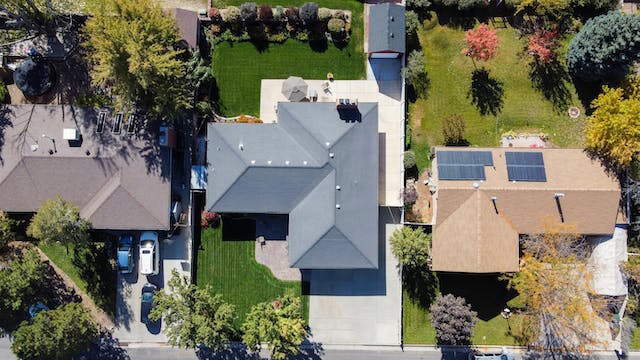Have you ever found yourself lost in the labyrinth of real estate jargon, wondering about the best way to seal the deal on your dream property? No worries, because we’re here to demystify two commonly used yet often misunderstood terms: Contract for Deed and Mortgage/Deed of Trust.
As a mortgage note investing company, we understand the importance of choosing the right financing option for your unique needs.
Understanding the Basics

Let’s start with the basics. A Contract for Deed (also known as a CFD) is essentially a seller-financed agreement where the property’s title remains in the seller’s name until the buyer fulfills the payment terms.
On the flip side, a Mortgage or Deed of Trust involves a lender providing funds to the buyer, who in turn uses the property as collateral until the loan is repaid.
The choice between a mortgage and a deed of trust often depends on state laws. In general, states north of the Mason-Dixon line use mortgages. Those in the south use deeds of trust.
A mortgage is a two-party agreement between the borrower and the lender. A deed of trust involves three parties, where the borrower conveys legal title to the property to a trustee, who holds the property in trust as security for the lender until the loan is paid off.
Flexibility vs. Rigidity
One of the key distinctions lies in the flexibility each option offers. A Contract for Deed is often seen as more lenient, with negotiable terms between the buyer and seller. This can be a boon for those who prefer a personalized, less regimented approach to financing.
On the other hand, a Mortgage/Deed of Trust involves a more standardized process, complete with fixed interest rates and predetermined repayment schedules.
The Downside of the Contract for Deed
While flexibility is undoubtedly an asset, it comes with its own set of risks. In a Contract for Deed, the buyer doesn’t gain full ownership until the final payment like that of a car title.
If financial troubles arise, the seller retains the right to reclaim the property and can cancel the contract without the lengthy foreclosure process typical of a Mortgage/Deed of Trust. This can make Contract for Deed arrangements a bit precarious, especially for buyers in unpredictable financial situations.
The Safety Net of Mortgages/Deeds of Trust
Mortgages and Deeds of Trust provide a safety net for both buyers and lenders. The legal framework in place ensures a more defined process, protecting the rights of all parties involved. If the buyer defaults, the lender has a clearer path to reclaim the property through foreclosure, providing a layer of security often absent in Contract for Deed agreements.
Choosing the Right Option
Now, let’s talk strategy. The decision between Contract for Deed and Mortgage/Deed of Trust depends on various factors, such as the type of property and your unique circumstances.

For Investment Properties
If you’re looking to invest in real estate, a Mortgage/Deed of Trust might be your go-to option. The structured nature of this arrangement provides security for lenders, making it easier to secure loans for investment properties. The transparency of the process can also be attractive to potential partners or investors.
For Seller Financing
If you find yourself in the seller’s shoes, offering a Contract for Deed can be a compelling option to attract buyers. The flexibility allows for creative financing arrangements, potentially making your property more marketable.
Considering Your Financial Situation
Your current financial situation plays a crucial role in determining the right path. If you’re financially stable and prefer a more secure, standardized approach, a Mortgage/Deed of Trust might be the safer bet. However, if flexibility is a top priority, and both parties are comfortable with the risks involved, a Contract for Deed could be the way to go.
The Final Question: What’s Your Best Fit?
As you navigate the intricate world of real estate financing, the ultimate question remains: What’s your best fit? Are you drawn to the flexibility of a Contract for Deed, or does the security of a Mortgage/Deed of Trust align more with your goals?
Remember, there’s no one-size-fits-all answer. It all boils down to your unique needs, the property in question, and your comfort level with the associated risks.
You May Also Want to See:
- CFD vs. Mortgage/Deed of Trust – What’s the Difference?
- Unlocking Cash Flow: Harness Mortgage Note Investing and Be Your Own Bank
- Demystifying Mortgage Note Investing: How to Get Started Now!
- 8 Ways to Make Money with Real Estate Note Investing
- Top 3 Reasons Why Note Investing Is the Future of Investing
